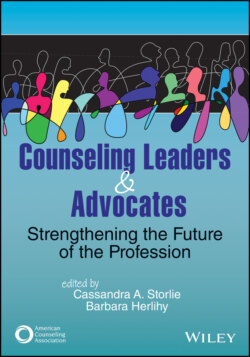Читать книгу Counseling Leaders and Advocates - Группа авторов - Страница 33
BLM and Counseling Leadership
ОглавлениеAs the counseling profession endorses and advocates for culturally responsive leaders, we must be ready and willing to situate ourselves within the context of the sociopolitical landscape in the United States and globally. The BLM movement explicitly aligns with the profession’s espoused value and ongoing work against anti-Black racism in all of its forms. Washington and Henfield (2019) address this issue and describe how the MSJCC can function as an ethical framework for counselor educators in their work with preservice counselors to increase their awareness, knowledge, and skills about how state-sanctioned violence against Black people is routinely experienced and impedes their wellness. They make clear connections between the BLM ethos and the counseling profession and recommend specific action steps. Specifically, they suggest that counselor educators enhance their pedagogical practices and curricula by inviting members of the BLM movement into their classes and “creating an awareness-raising assignment that inverts the immersion activities/assignments commonplace” in our programs (p.156). They also recommend enhancing our counseling scholarship by initiating research projects that document student, faculty, and alumni perceptions of and experiences with the BLM movement as a baseline for more expansive and in-depth research projects.
As an extension of the work by Washington and Henfield, we offer suggestions for how counseling leaders can further engage in advocacy in support of the BLM movement. Drawing on Bronfenbrenner’s (1979) ecological systems theory to contextualize that work, we operationalize each of the five levels of the ecological systems framework and provide ways to evaluate the effectiveness of advocacy work within each level (Figure 2.2).
